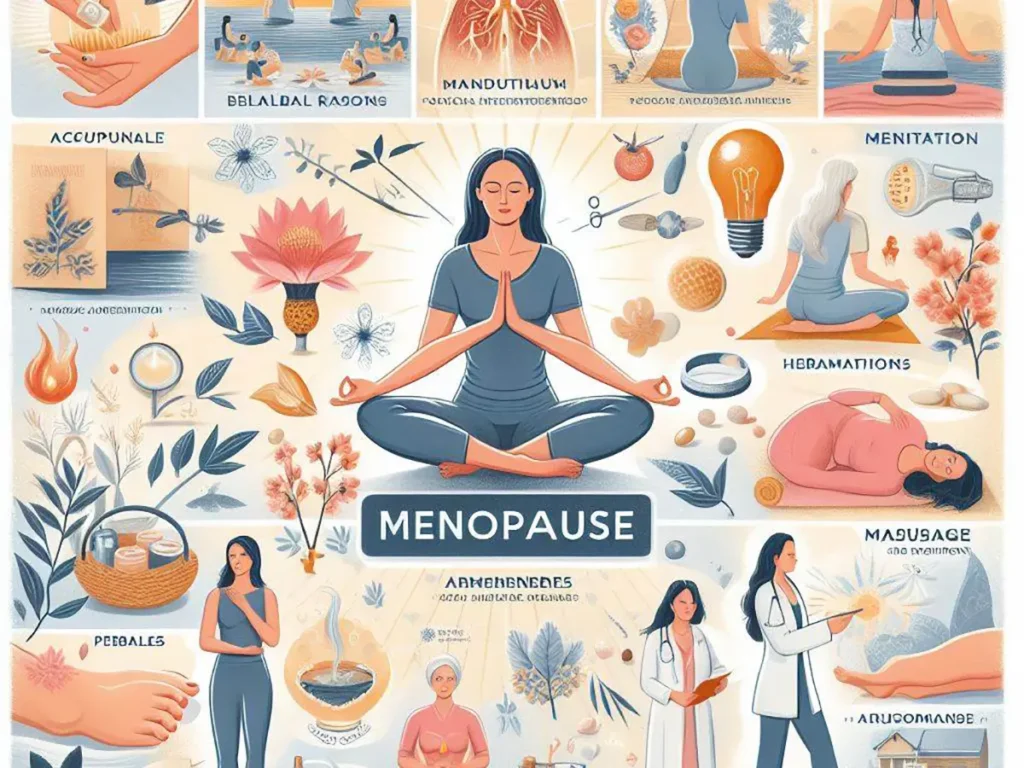Menopause is a natural stage in a woman’s life that marks the end of her reproductive years. While it is a normal part of ageing, menopause can bring about a range of physical and emotional symptoms that can be challenging to manage. Hormone replacement therapy (HRT) has traditionally been the go-to treatment for menopause symptoms, but alternative therapies are gaining popularity as safe and effective options.
Acupuncture
Acupuncture, an ancient practice from Traditional Chinese Medicine, involves the insertion of thin needles into specific points on the body. It is believed to help regulate the flow of energy, or qi, in the body. Studies have shown that acupuncture can provide relief from hot flashes, night sweats, mood swings, and sleep disturbances associated with menopause.
Yoga
Yoga is a mind-body practice that combines physical postures, breathing exercises, and meditation. It is beneficial for managing menopause symptoms by reducing hot flashes, improving sleep quality, reducing stress and anxiety, and improving overall well-being. Certain yoga poses, such as forward bends and twists, can specifically target areas of the body affected by menopause, such as the spine and pelvic region.
Herbal Remedies
Herbal remedies have been used for centuries to alleviate menopause symptoms. Some promising herbs for managing menopause symptoms include black cohosh, red clover, dong quai, and evening primrose oil. However, it’s important to note that herbal remedies can vary in potency and effectiveness, and it’s advisable to consult with a healthcare professional before starting any herbal treatment.
Mindfulness Meditation
Mindfulness meditation is a practice that involves bringing one’s attention to the present moment and accepting it without judgment. It is effective in reducing stress, anxiety, and depression, which are common symptoms experienced by women going through menopause. By incorporating mindfulness meditation into their daily routine, women can develop a greater sense of calm and acceptance during this transitional phase.
Diet and Exercise
Optimal nutrition and regular exercise are essential for overall health and well-being, especially during menopause. A diet rich in fruits, vegetables, whole grains, and lean proteins can help manage menopause symptoms. Regular exercise, such as walking, swimming, or cycling, can help reduce hot flashes, improve sleep, boost mood, and maintain a healthy weight.
Conclusion
While hormone replacement therapy may be an effective treatment for some women, alternative therapies offer a safe and natural approach to managing menopause symptoms. Acupuncture, yoga, herbal remedies, mindfulness meditation, and healthy lifestyle choices can all play a role in alleviating the physical and emotional challenges of menopause. Women must explore these options and find what works best for them to navigate this transformative stage of life with grace and ease.






